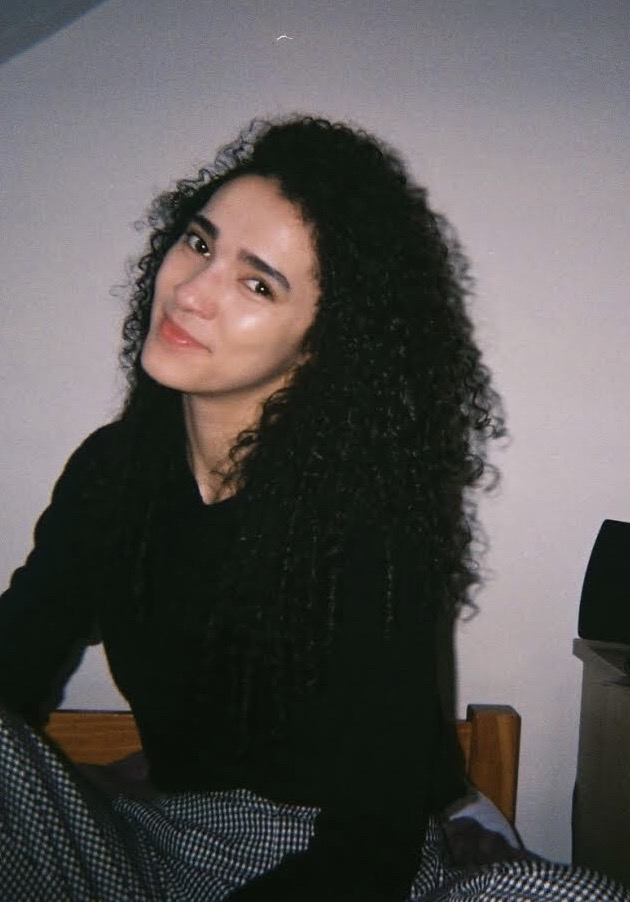Education is vital in challenging the UK’s systemic racism – but anti-blackness remains rife in schools. We must tackle the prejudice and discrimination my peers and I experienced in the classroom, writes Alice Bettis Marsh.
It is easier sometimes to assume that you are the problem. In fact, when you are younger, that’s often all you think. You are too young to understand prejudice and too young to understand that people have preconceived judgements of people based on the colour of their skin. So, you naturally assume it is something you have done.
How could I have understood what an unconscious bias was at five? I just assumed Ms Brown* spoke to me in that tone, because of me, that she did not give me as much attention during lessons because of something I had done.
I have vivid memories of being five and thinking: “She likes the other girls, maybe if I just behaved a little more like the other girls then she would like me”.
Then, one day when my mum came to pick me up from school, she noticed that when leaving the classroom, Ms Brown would kiss the head of every single one of my white classmates heads, but would look away when me and other classmates, also children of colour, walked by.
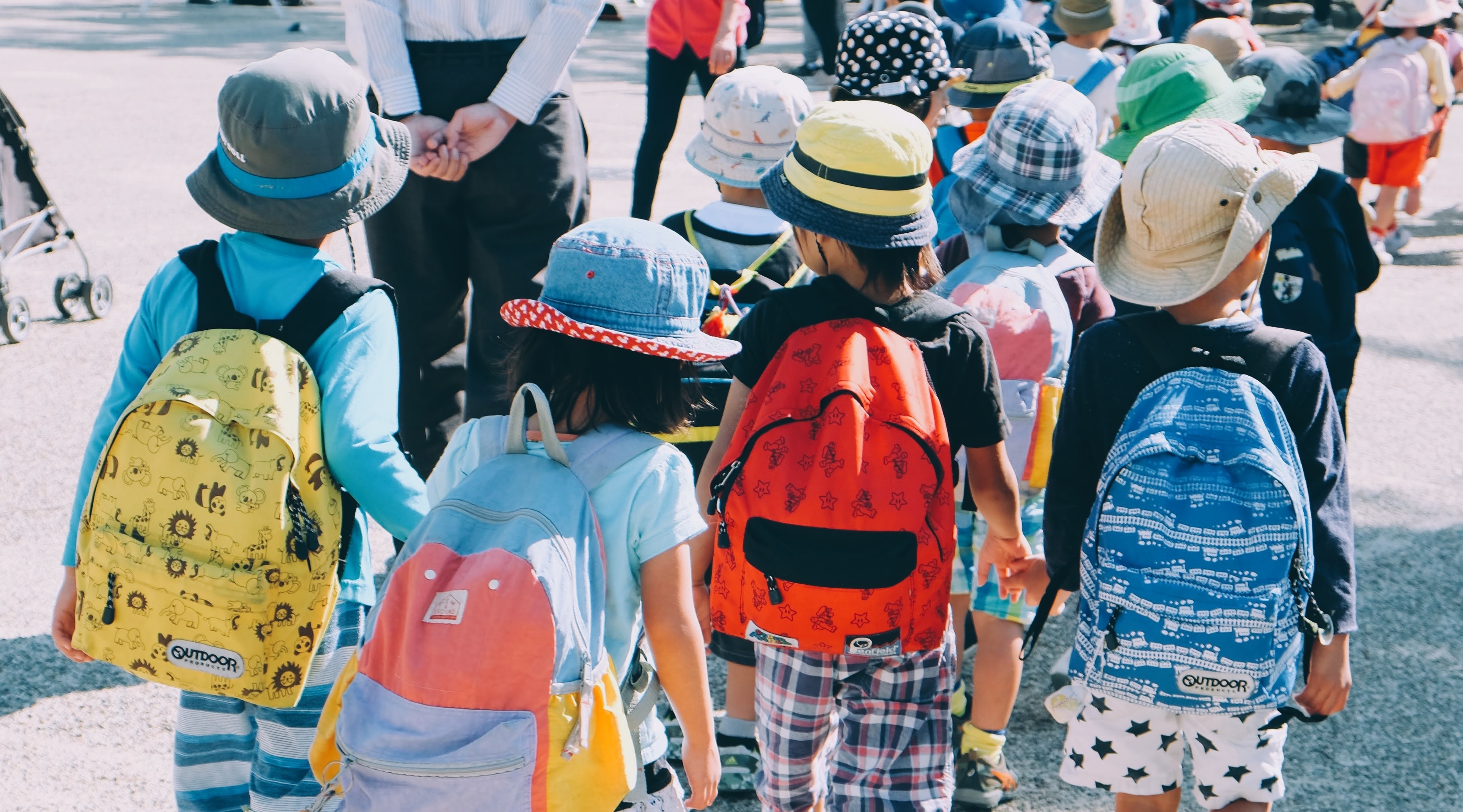
School children walking home. (Image Credit: Note Thanun / Unsplash)
Ms Brown should not have been kissing any of her pupil’s heads, that point is not up for debate. But following this observation, a pattern very clearly emerged. In Miss Brown’s class I was not important, I was often left at the back of the classroom and not engaged with.
On parents evening my mum was expecting an update on my reading progress and to learn more about how my first term in school was going. What she received was “she sits with Jess* very well on the mat”. Jess was incidentally the only other mixed-race girl in my class.
That was all Miss Brown could say about me or Jess after a term of teaching us, because she just simply wasn’t interested in educating us. I changed schools after that term.
When leaving the classroom, Miss Brown would kiss the head of every single one of my white classmates heads, but would look away when me and other classmates, also children of colour, walked by.
However, this wasn’t my last experience of racism from my teachers – and I am not alone. Recent research from the YMCA found that 95 percent of young Black British people had witnessed racist language in education, and half of all Black males said they either heard racist language or witnessed racism ‘all the time’. Almost half said that racism was the largest hurdle to academic success – with 50 percent saying that teacher perceptions were their biggest barrier.
It’s a problem that’s exacerbated by being taught by people who overwhelmingly don’t look like us. The latest government statistics show that less than 15 percent of all teachers at state-funded schools in England describe themselves as being in a minority ethnic group. This drops to just six percent in some areas of the country such as Manchester. On top of this, a recent report from the Runnymeade Trust found that by their own admission, many teachers are ill prepared to teach in ways that promote anti-racism.
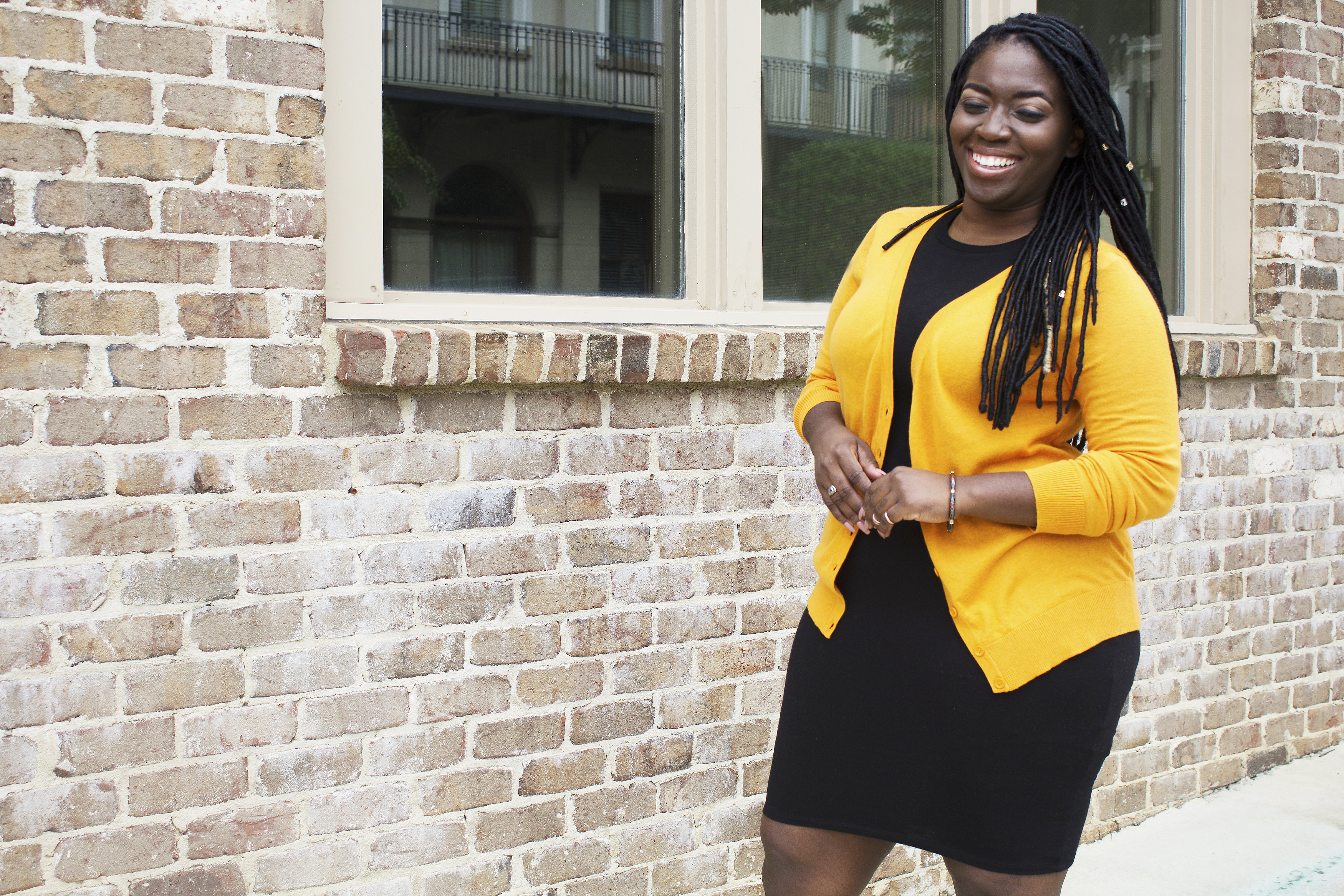
There is a shortage of Black teachers in UK schools. (Image Credit: CreateHerStock)
Racism in the education system manifests itself in very covert ways. In my experience, it meant being written off academically. Teachers presumed I was an underachiever. For example, in my final GCSE year, my parent’s were told that I was not taking Chemistry “seriously at all, she will be lucky if she scores a B, she is currently working at a D”.
When I calmly asked for the grades to be double checked, she quickly corrected her answer to “well, Alice scored an A* in her controlled coursework, but, still…”. Ms Jones* had written me off, sitting the grades right in front of her, grades that proved I was working at an A grade already. Yet she confidently told my mum I was likely to fail. To Ms Jones, I was lazy and difficult, regardless of whether the grades said otherwise. On reflection, my mum describes my education as feeling like a ‘fight’ to get me educated at all.
To Ms Jones, I was lazy and difficult, regardless of whether the grades said otherwise. On reflection, my mum describes my education as feeling like a ‘fight’ to get me educated at all.
Being ignored is a common experience for children of colour across the UK – and it has been for decades. For example, activist, social commentator and rapper Akala revealed in that growing up in the 90s he was placed in a special needs group despite having a reading age of almost double his actual age. Similarly, Sarah, a 21-year-old from Brighton told me how she was always placed in the lowest of four sets at secondary school.
“My grades in SATs were one of the best in my class, yet I was placed in the bottom set, my twin brother included,” she tells me. “Upon reflection, a lot of the people that were in the bottom set with me were also people of colour. Although I was getting grades that surpassed my set four peers, I was still [there] until I was in Year 9.”
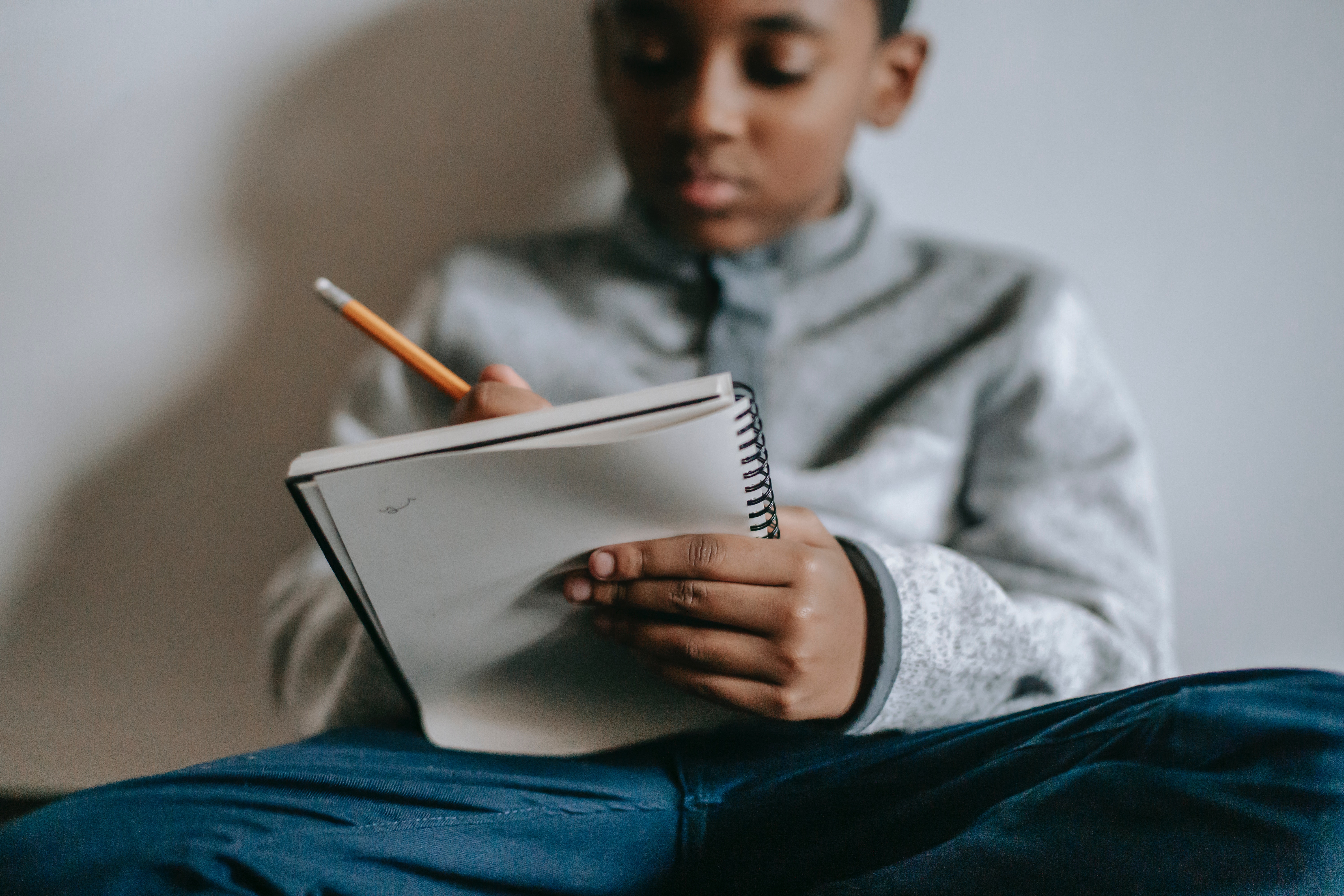
A boy works on his homework independently (Image Credit: Katerina Holmes)
Although some might argue being ‘ignored’ is on the lesser end of racial aggressions, the repercussions of being ignored during any period of a child’s education can be incredibly detrimental, with the link between missing out on education and drops in attainment well documented. Especially for children who require additional support for learning difficulties, left unchecked this can mean a child who needs support will instead be labelled as ‘difficult’ and ‘aggressive’. This is especially true for Black children. As a result, Black Caribbean pupils are three times more likely to be permanently excluded.
“Black boys in the Learning Support Unit (LSU) would often miss entire days of lessons for weeks,” says Chris, a 22-year-old who went to school in Moss Side, Manchester. “In some respects it felt like a prison system within school or glorified day-care. Despite the name, not much learning happened in there. It felt like the school had given up on their education, which definitely had an impact on their opportunities for the future. The rope is often shorter for a black student to find himself in the LSU.”
It some respects it felt like a prison system within the school or a glorified day-care. It felt like the school had given up on their education, which definitely had an impact on their opportunities for the future.
Chris, 22
It’s an experience also echoed by Ellie, 22, from Birmingham. Speaking to me for this piece she said that from the age of 11, she consciously held herself to an “adult-like” standard so as to not be labelled as the “rude black girl”. “There was definitely a narrative between teachers that the Black girls needed to be treated differently as they were too loud, angry and aggressive,” she continued. “The negative stereotypes that were reinforced at such a young age, especially within school, meant that young Black girls were held to an adult like standard.” In short, Black children won’t be awarded the “naivety” and “innocence” white children are.
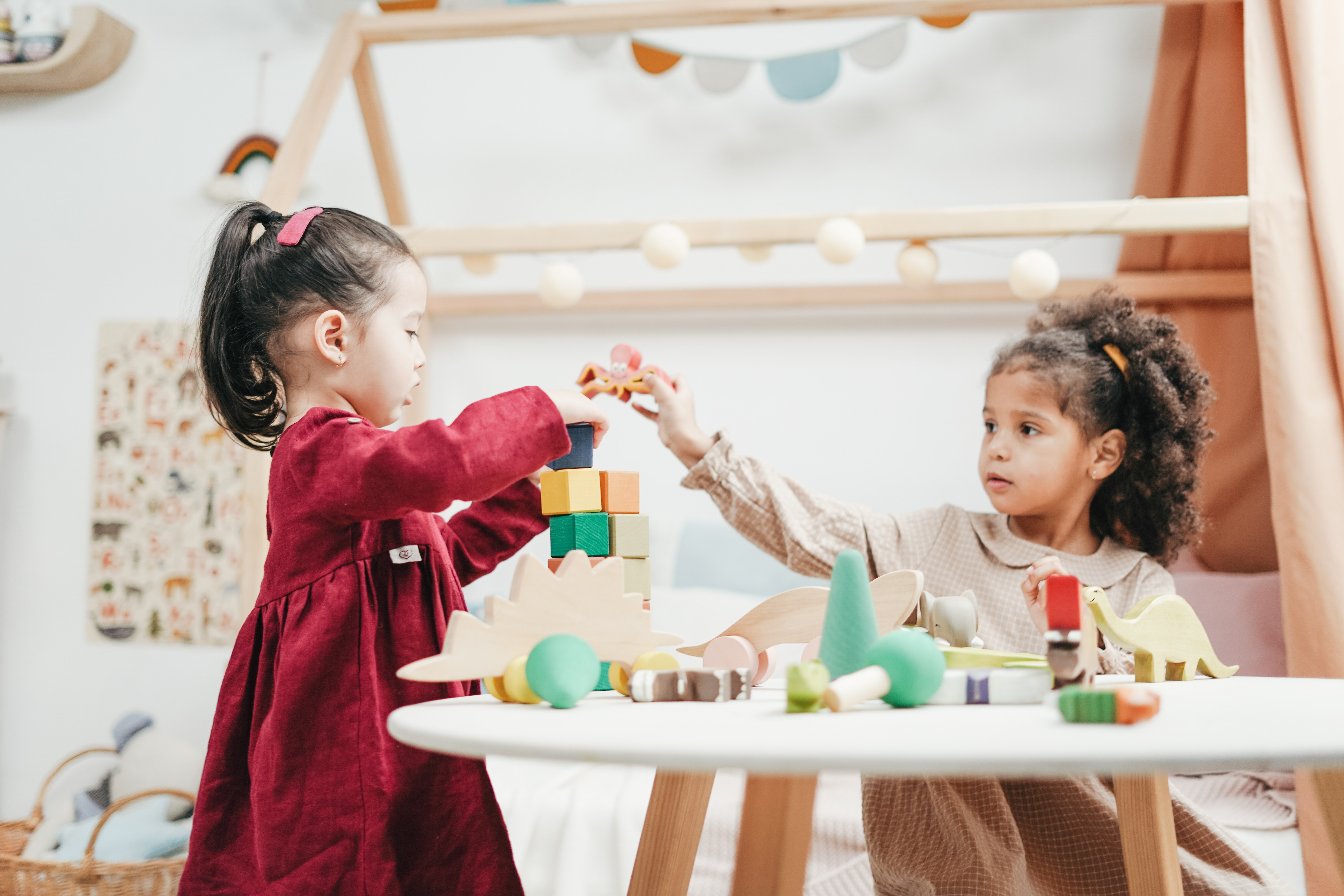
Racism will even police the way children style their hair. (Image Credit: Cottonbro / Pexels)
The racism is often even more overt still, with Black children across the country finding themselves policed for something they have no control over – their natural hair, which is as intrinsically them as their fingerprint or eye colour. In Fulham, 12-year-old Chikayzea Flanders left his school on his first day, after being told that his natural neatly tied up dreadlocked hair, was in breach of the schools uniform policy. He was ordered by his school to ‘cut off’ his dreadlocks before he even had a chance to start learning.
For Flanders a Rastafarian, his dreadlocks are a “fundamental tenant of his beliefs”. Yet, despite being intrinsic to his identity, he was at risk of suspension. Similarly, in East London, Ruby Williams was sent home from school because of her natural afro hair, which was found to “breach the schools uniform policy” due to not being ‘of reasonable size and length’. In both these cases, children were discriminated against and lost out on invaluable time in their education for simply walking into school.
By policing natural hair in this way, the British education system is effectively telling young Black people that they are not valid in themselves.
When I was writing this piece, I reached out over social media to hear other people’s stories and immediately my inbox was flooded. I thought it would take a while to draw out the themes in our experiences, but it was sadly easy to isolate very common threads. Despite our age differences and geographical spread, we all had similar tales from our time in education – all caused by the colour of our skin.
It’s vital we look at every part of the Black experience, from the way children are treated to the way we teach Black history and culture in schools. As one interviewee told me, there was “very minimal” education on African history and culture, and what was presented “would cultivate a warped perception” that these cultures were “backwards and uneducated”. Add to this recent comments from the equalities minister that teaching pupils core principles of racism such as “white privilege” could be breaking the law, and progress feels glacial. While the education system continues to fail to correct this, the same issues will continue to be perpetuated.
* Some names have been changed.


